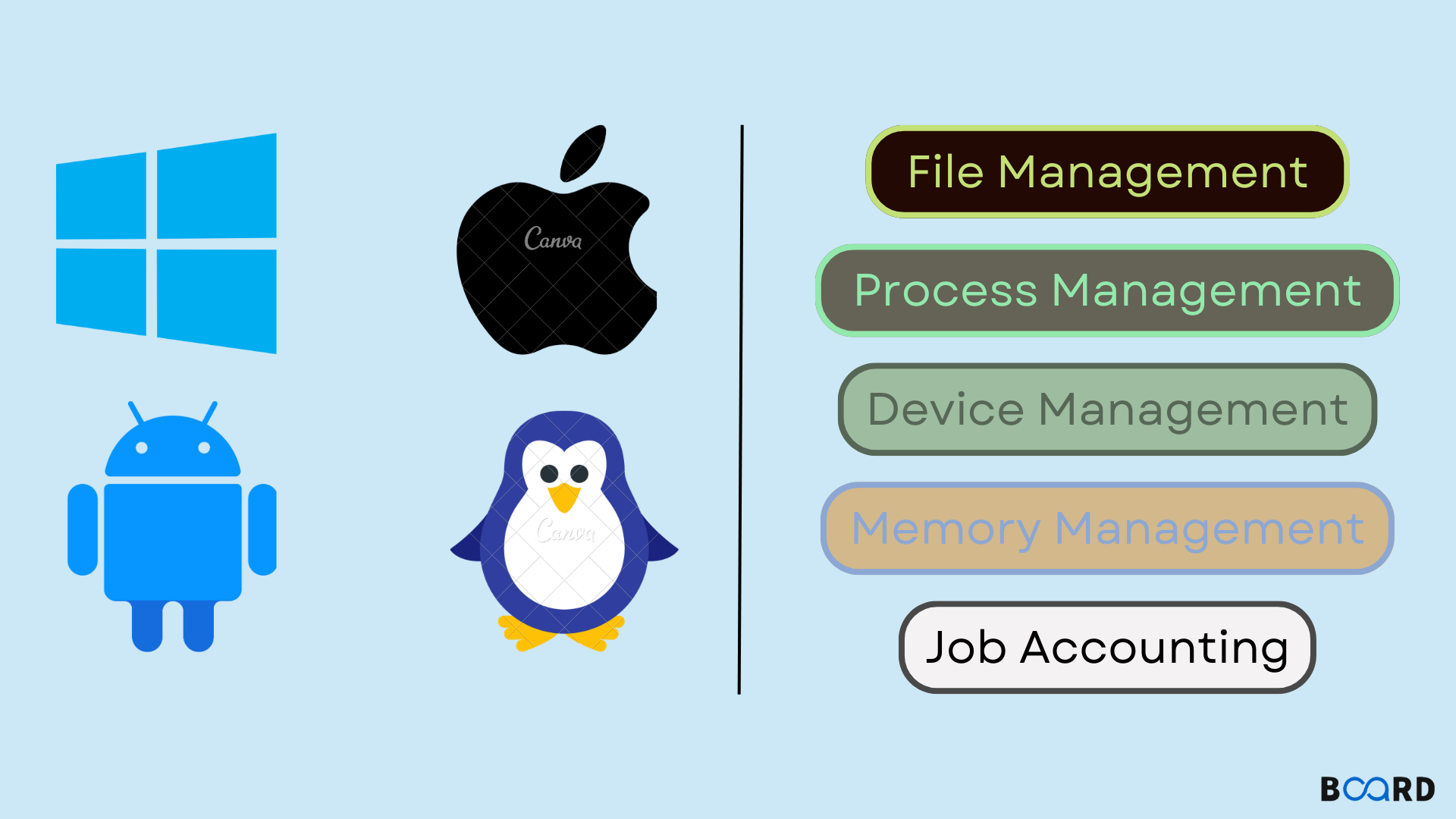Fundamentals of Operating System
Operating System: Functions

Introduction
An operating system (OS) is a piece of software that controls a computer's hardware and software resources. In other words, it's the whole collection of programs and tools that enable your gadget to function. Various operating systems may offer different play stores for apps. For instance, Windows users can download and install software from the Microsoft Store, while Mac users can do the same from the App Store. As a result, different operating systems may have different app stores and applications. We'll talk about operating system functions in this article. We'll talk about an operating system's features.
What is an operating system?
Software that runs/manages computer hardware and software resources and offers standard services for computer programs is known as an operating system. Operating systems come with a variety of installed programs and apps.
It serves as the foundation of your computer. It is in charge of maintaining your files and doing other crucial tasks like starting up and shutting down your computer. Additionally, it offers a connection between you and the computer.
An operating system can be installed on various hardware platforms, including desktop computers and mobile devices. Microsoft Windows is the most widely used desktop operating system, while Apple iOS is the most commonly used mobile operating system.
Functions of Operating System
File Management
Managing files on a computer is the operating system's responsibility. This category falls under file creation, opening, shutting, and deletion. The disk's files are organized by the operating system as well. Consider your computer to be the project manager. Similar to how an operating system is responsible for monitoring ongoing operations, giving resources as needed, and ensuring everything is in order, a project manager oversees the entire team, examines the work of every team member, provides resources, and facilitates things for team members. This may also entail controlling who has access to the files and folders on the computer.
The OS also controls file permissions, which specify what operations a user can perform on a given file or folder. You might be able to read a file but not edit or remove it, for instance. As a result, nobody else can access or alter your data.
Device Management
Operating systems provide essential features for controlling devices linked to a computer. These processes include managing storage devices, processing input and output requests, and allocating memory. This could be a keyboard, mouse, printer, or any other connected device. You will have options through an operating system to control how each gadget acts. You could, for instance, configure your keyboard so that you can only text in a specific language or limit the mouse movement to one screen at a time. An operating system can also control security settings and install software and updates for your devices.
Process Management
Managing the processes that are active on your computer is the operating system's job. Program initiation and termination, resource distribution, and memory management fall under this category. The operating system ensures that all of your computer's software is compatible. Additionally, it is in charge of enforcing software security, which aids in protecting your computer from potential threats.
How are all processes managed by operating systems?
Each process is allotted a quantum of time to complete its work. The operating system stops a cycle when it has used its quantum and gives another method a chance. This guarantees that each process receives an equal amount of CPU time.
Memory management
Memory management is one of an operating system's most essential features. This is the procedure for monitoring the many programs and applications active on your computer, together with the data they are consuming. This is crucial for computers with less memory since it prevents any program or process from using too much memory and bogging down your machine. The operating system can destroy files and transfer data around.
Job Accounting
The task accounting feature of an operating system is an effective tool for monitoring how your computer's resources are being used. You can use this information to locate and resolve any performance problems and spot unwanted program installations. The users and processes that consume the most resources are recorded by operating systems. This data can be used for several things, such as monitoring system usage, charging users for resource use, and informing system administrators about which users and processes are problematic.
Conclusion
Operating systems are essential to our existence and carry out several tasks that improve our quality of life. Operating systems play a crucial role in every aspect of our daily life, from connecting to the internet to managing our files and programs. We trust that this article has helped you better understand how operating systems work and how they might improve your life. Keeping up with the most recent versions is crucial since operating systems are constantly developing and getting better.
